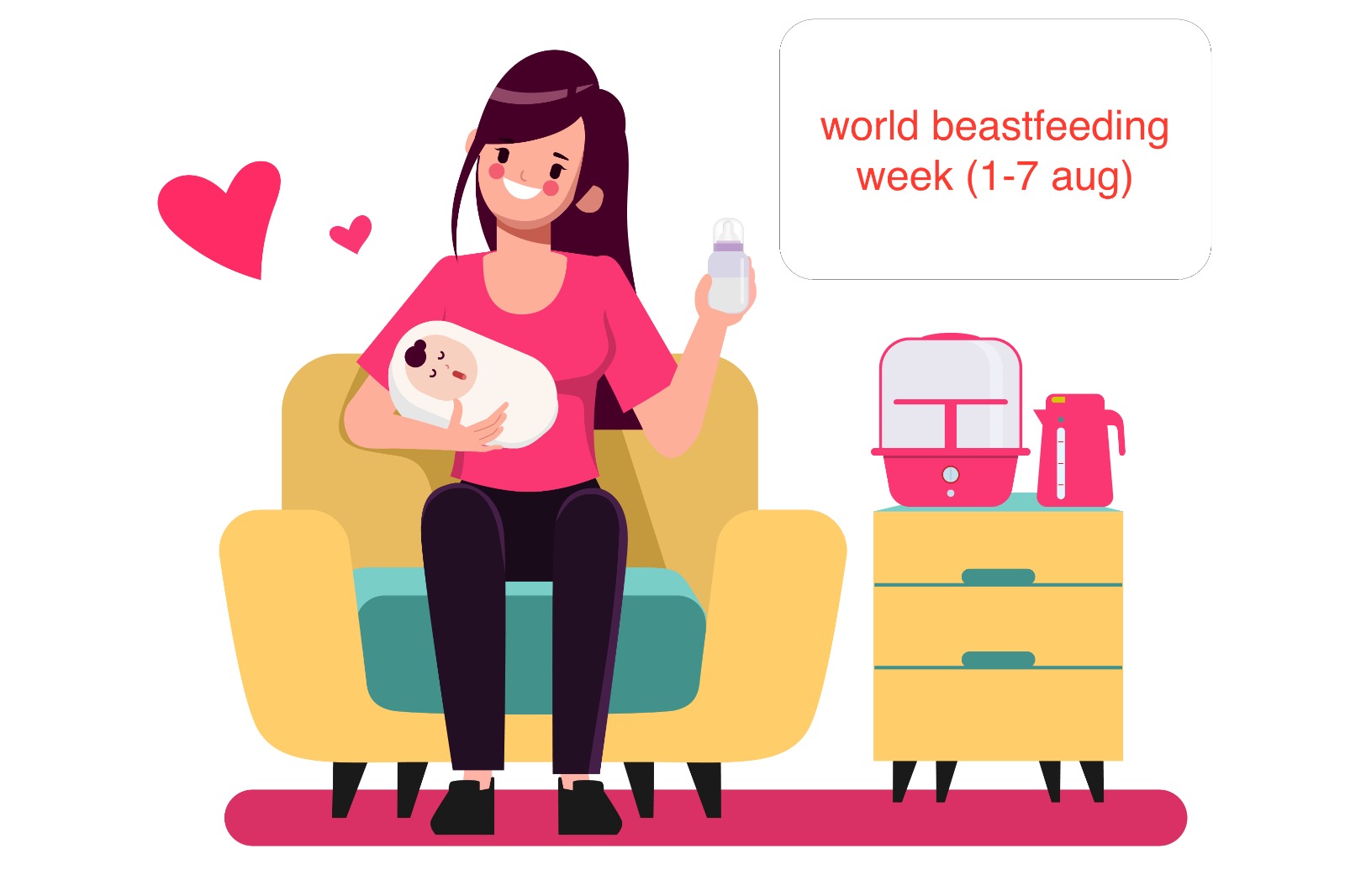Call Us +91 9999916154

A baby birth weight double by about 5 months of age and triples by 1 year. Good feeding practices are not only essential for proper growth but also set the stage for food and eating pattern and a healthy weight through out life.
Your feeding relationship and how you shift from breast milk or formula to solid foods and then to family food can provide good, long term health outcome for you and your baby. Feeding practices during first year will affect the quality of your baby’s diet and your baby’s weight status in childhood and beyond.
Breast milk alone can provide optimal nutrition and health protection for most babies growth and development during the first six months of the life. When solid food are introduced, they compliment breast milk as the ideal feeding pattern.
1). The longer a baby breastfeed the greater the benefits are, babies benefits even when breastfeed last for only a short time, perhaps during a six to eight week maternity leave.
2). Immunity and nourishment starts with colostrum, the clear on yellow fluid secreted by the breast for 2 to 4 days after delivery.
Think of colostrum as a newborn first immunisation. Not only rich in protein and vitamin A, colostrum has more antibodies than the mature milk the follows. Its colour and thick consistency came from its protective factors. Colostrum also helps a baby pass his or her first stool.
Breast milk unlike formula has antibodies and other substance that help build the immune system and friendly gut bacteria. They help protect a baby from illness such as diarrhoea, a ear infection, intestinal infection and respiratory illnesses.
In fact human milk contain at least hundred ingredients that infant formula doesn’t have.
3). As baby mature and grows the composition and amount of breast milk that a mother produce naturally changes.
4). Breast feeding requires more complex sucking than bottle feeding, this help strengthen and develop the baby’s jaw and so help teeth.
5). Breastfeed babies may have lower risk of asthma, celiac disease, sudden infant death syndrome and type 1 diabetes. May promote healthy weight, breastfed babies may be at less risk of overweight or obesity later.
Deciding to breastfeed is personal. As parent you need to consider your family’s lifestyle, economical lifestyle, economical situation and cultural beliefs. The mother’s and infant’s physical ability are important consideration too.
For most nutrient what a mother eats has little if any effect on the nutrient content of breastmilk. If her nutrient intake is low, her body’s own stored nutrients may be used for breast milk, putting her at potential nutritional risk.
Breastfeeding is not only benefits baby but nursing mom too:
— Nurture a close bond between mother and baby.
— Helps reduce bleeding after delivery and regain a pre-pregnancy body figure.
— May promote weight loss, milk production burn calories.
— Provide convenience, always ready to feed.
— Women who have breastfed may have lower risk a developing pre menopausal breast cancer, ovarian cancer, type 2 diabetes, high blood pressure.
— Breastfeeding is economical and even accounting for the cost of the extra food for mom and her breastfeed supplies such as nursing bras and a breast pump.
If you have concern about how much your baby eats, how feeding is going and how your baby is growing, talk with your paediatrician and qualified dietitian.
Take help from registered clinical dietitian or nutritionist to develop a positive relationship of your baby with food and eating.
© 2022 Priwell Diet. All Rights Reserved | Powered by SoftElixir
